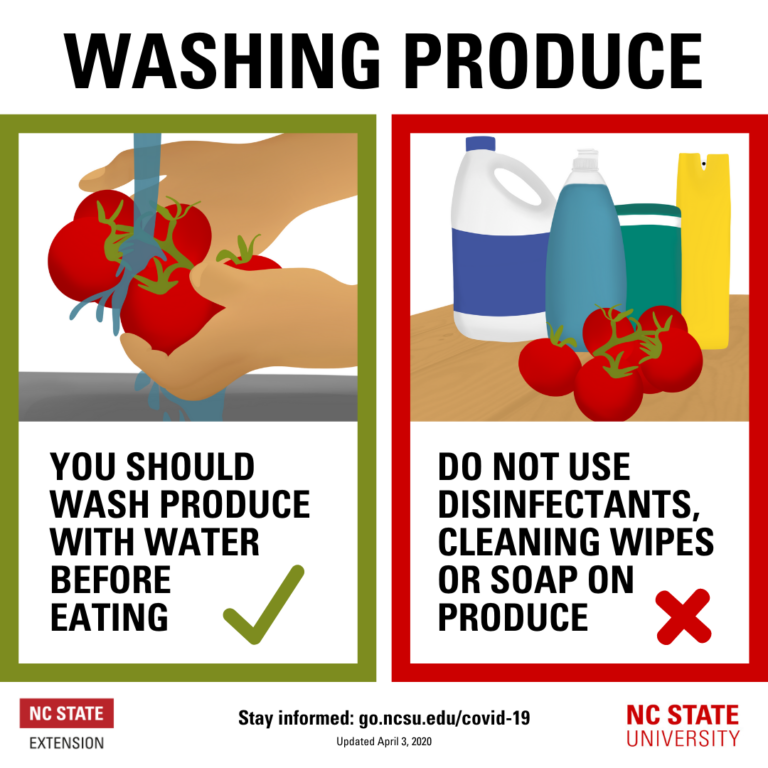Home Grown: Supporting agriculture during a pandemic

YUMA, Ariz. (KECY/KYMA) - During this time of the coronavirus, for farmers and ranchers, their calling hasn’t changed.
They are still getting up every day to grow the food we all depend on.
For today’s Home Grown, I spoke to a lead food safety specialist to find out how we as consumers can continue to support agriculture in Yuma.
"I’m a food safety specialist. I do extension and outreach with various different audiences throughout big food safety questions. So I do a lot of work with consumers on in-home food safety as well as the food industry, restaurants, grocery stores,” said Dr. Benjamin Chapman, professor and food safety specialist with North Carolina State University, NC Cooperative Extension.
State Farm Bureaus are engaging farmers on the topic of worker safety in various ways.
From adding handwashing and sanitizing stations in the field to limiting person-to-person interactions as much as possible, farmers are doing everything they can to keep safety their top priority for field workers and consumers.
“The number one thing is that if someone does have symptoms, a harvester or somebody who is working in food production in growing food, that they are not actually around people,” said Dr. Chapman. “So this is where face coverings come into play; bandannas or any face cloth coverings to catch any moisture droplets,” he continued.
I asked Dr. Chapman what the biggest concerns are that people have had when it comes to COVID-19 and their produce.
“The epidemiology, the study of disease really shows that food doesn’t matter whether it’s produce or hamburgers, food really hasn’t been identified at all as a risk factor for getting sick,” said Dr. Chapman.
Chapman says thoroughly rinsing your vegetables and washing like normal if necessary, can be just as good if not safer than using bleach or other stronger cleaning agents.
“Those other things like soap and chlorine can lead to toxicity as you consume that produce,” said Dr. Chapman.
If you are using anti-bacterial items such as wipes or sprays to wipe off boxes or bags of food, Dr. Chapman suggests saving those products for other purposes.
However, it is always important to follow good hygiene practices when handling or preparing foods.
“If I am really concerned about conserving the disinfectant that I do have, in case someone in my family does get sick and I need to have isolation for them in my home, I don’t want to be using it on my cereal box, I want to make sure that I’m protecting the rest of my family,” said Dr. Chapman. "The science that we do have is that run-of-the-mill hand washing is going to do a lot of risk reduction,” he continued.
I asked him what ag experts are doing to steer people in the right direction when it comes to misconceptions.
“We are actually looking every day to really ensure that we don’t see any food safety issues as it relates to COVID-19. That information that we are really pushing people towards for assurances is what the CDC is saying, what the FDA is saying, which is: we have no evidence right now that food is a factor,” said Dr. Chapman.
The coronavirus is also impacting food prices and dinner tables across the U.S., which imports only about 15% of its overall food supply.
“I think supporting local farmers is important. Again keeping the health of our essential services so we have businesses that are producing food is necessary, as we go forward. Farmers markets are a great way to do this,” said Dr. Chapman.
Some local governments have shut down farmers' markets, but others have classified them as essential businesses, helping keep commerce flowing from farm to table.
“What we don’t want to have is our labor and workforce reducing because of individuals and changing the amount of food that we’re producing,” said Dr. Chapman.
On the one hand, the surge in demand for some food products at retail stores benefits farmers, but some products don’t do well into the retail space.
“I have heard upwards of 75% of foodservice sales decline. The problem that we have with that, is that our entire supply system into foodservice looks different than it does going to retail stores,” said Dr. Chapman.
The virus affects ag both negatively and positively, Dr. Chapman explains:
“On the negative side, people are not able to sell their produce because that chain is filled, but I think we will adjust to this overtime I really hope so. Where there have been sales increases, are places like farmers markets, community shared agriculture, and very close lines of delivery, and aggregators and food hubs, because people want to get that produCE and they may not be able to get it as abundantly at a grocery store, so they are looking for alternative ways to get it,” said Dr. Chapman.
There are resources available for consumers/farmers to use to inform themselves and others.
“What we are trying to do, is gather the best available information from CDC and FDA and make it very pertinent to the audience that we work with day in and day out as food safety specialists,” said Dr. Chapman.
To read more about how agriculture has been affected by COVID-19 or how you can support farmers, click here.
